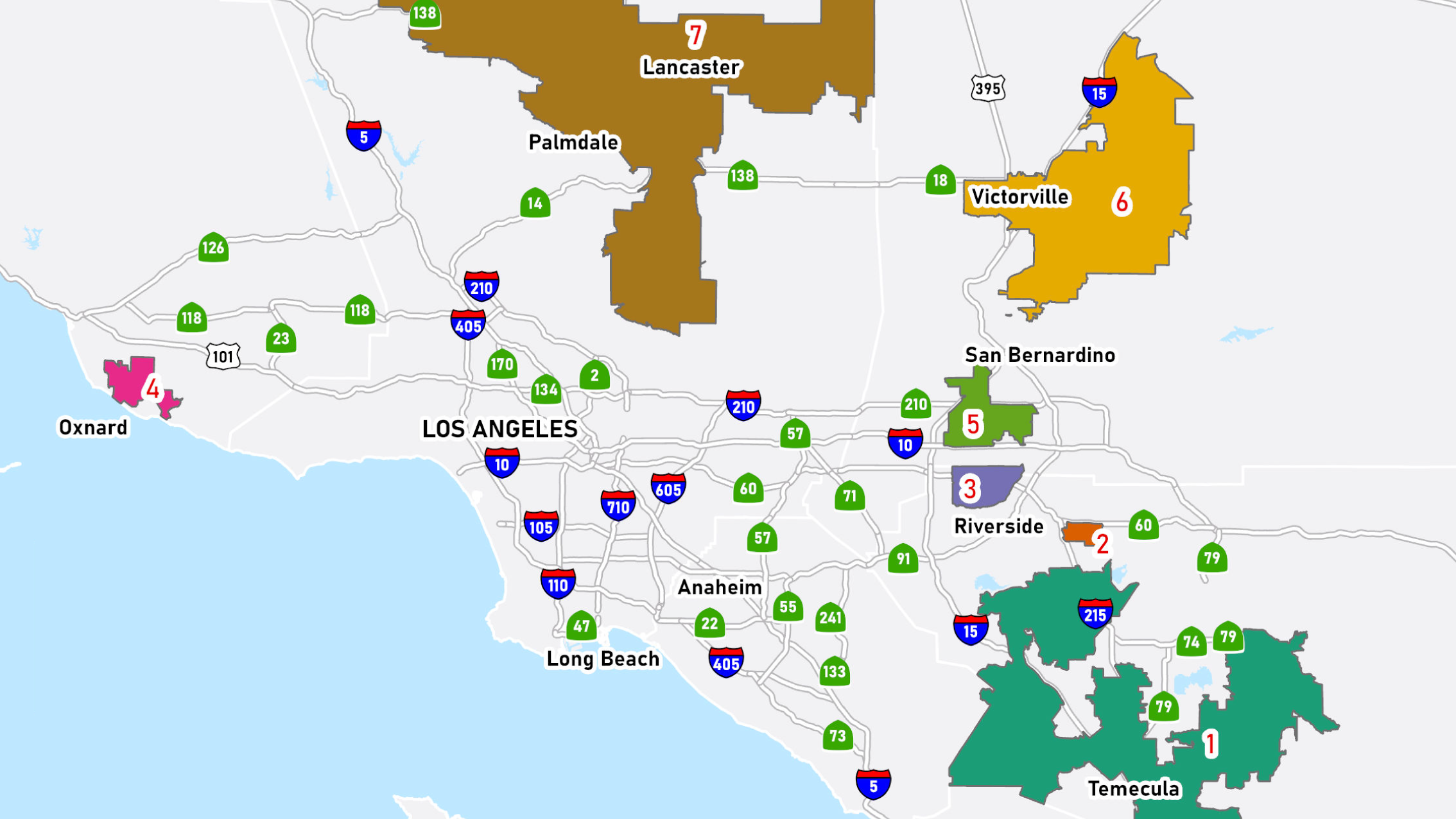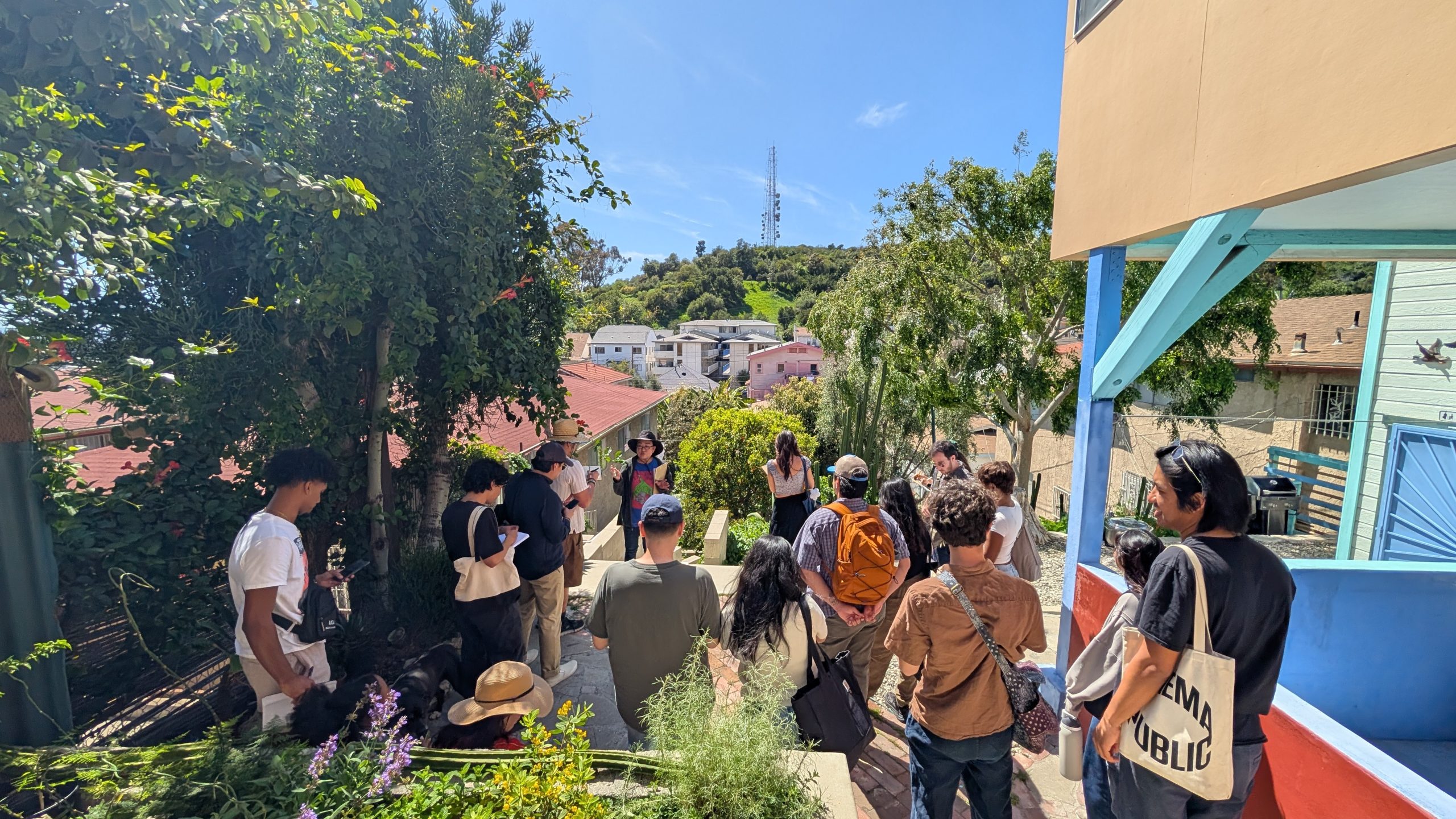
Cash works — so what’s next?
Experts and researchers of cash assistance pilot programs across the United States and in Canada convened to discuss how guaranteed income has helped their local communities — and its potential application in the L.A. region.
Lewis Center deputy director Madeline Brozen said that it’s already common knowledge that cash assistance helps individuals and families meet their basic needs. Even during the COVID-19 pandemic, many Los Angeles tenants relied on assistance in the form of stimulus checks or expanded unemployment benefits to pay for rent. Renters who were struggling to pay rent were also suffering disproportionately from anxiety, depression and food scarcity.
“We’re going to hear from four great pilot programs, but I’d argue the ‘pilot’ part is figuring out how to structure the programs — the in-depth mechanics of the task at hand, not a proof of concept,” she said at the May 7 InterActions LA event on guaranteed income and paths to prosperity.
Nika Soon-Shiong, co-director of the Compton Pledge, delivered the keynote address. The Compton Pledge is a landmark guaranteed income initiative that will distribute recurring cash relief to low-income residents for two years, making it the largest city-based guaranteed income pilot in the U.S.
Soon-Shiong spoke about how the research exists about the benefits of cash assistance, but that more is still needed.
“When it comes to what people spend the money on — to finally bust through those negative stereotypes — narrative change is just as important as empirical research,” she said. “It’s quite rare that an academic paper will change mindsets as much as those human stories.”
Other panelists shared how important shifting the narrative is because long-standing and negative myths about who receives cash and what they spend it on influence public policy.
Lisa Varon M.A. U.P. ‘03 moderated a panel representing various programs and populations. Regardless of whether the programs have been around for a few years or gearing up to launch in the near future, Varon highlighted many common threads: a focus on community-led design, relationship-building, and human dignity as a core value.
Sarah Stripp from Springboard to Opportunities spoke about their Magnolia Mother’s Trust, which launched in 2018 by providing $1,000/month to low-income Black mothers in Jackson, Mississippi. After the first year, every participant said they had enough money to meet their basic needs and felt hopeful about the future.
Heather Hay and Alice Hopkins of Foundations for Social Change talked about their program that provides a one-time $7,500 cash transfer to people experiencing recent homelessness in Vancouver. On average, cash recipients moved into stable housing in three months and spent 4,396 fewer nights homeless over a 12-month period, compared to individuals who didn’t receive assistance.
In San Francisco, a Black infant is almost twice as likely to be born prematurely compared to a white infant (13.8% vs. 7.3%). Pacific Islander babies have the second-highest rate (11%). Deborah Karasek from UC San Francisco, along with Latriece Love-Goodlett and Breezy Powell from Expecting Justice, shared about their upcoming project, The Abundant Birth Project, which aims to address inequities by providing monthly cash assistance to Black and PI pregnant women.
“Guaranteed income programs are not only about the cash itself but also about investing in communities, families and individuals,” said Lewis Center director Evelyn Blumenberg.



